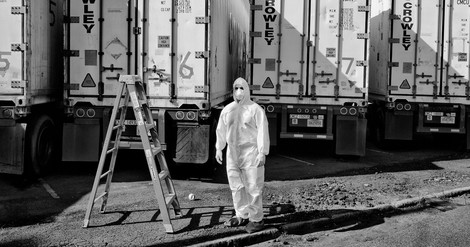Your podcast discovery platform
Curious minds select the most fascinating podcasts from around the world. Discover hand-piqd audio recommendations on your favorite topics.

piqer for: Globalization and politics Global finds
I am an Australian freelance journalist focussing on conflicts, politics, and warzones around the world. I have been working as a journalist for over 5 years, having reported from Australia, Germany, China, Egypt, Palestine, and Ukraine. I am especially interested in the way that new technologies are being used in conflict zones in unexpected and often disturbing ways. During my time working as a journalist, I also co-founded open-source war reporting site Conflict News.
Maria's Bodies
When Hurricane Katrina all but destroyed New Orleans and killed nearly 2000 people, America was horrified. 24/7 media coverage first followed the damage and the deaths, and then began to ask the hard questions about why so many (predominantly black) people had been left behind to fend for themselves.
And while the treatment of African American's in the aftermath of Katrina was a shame for the country, at least it was something which entered the national discussion. Now, more than a decade later, the situation has repeated itself in the US territory of Puerto Rico after Hurricane Maria, and worse still, it appears to have generated despairingly little media coverage.
More than 3 months after the storm hit, the official death toll stands at little more than 50, however, Mattias Schwartz's article for New York Magazine calls this figure into question. Through an in-depth look at the systematic collapse caused by the hurricane, and the slow and seemingly corrupt attempts to rebuild the island's shattered infrastructure, this article attempts to calculate a new death toll taking into account not just those who were killed by the wind and waves, but also those who have since perished due to a lack of services.
Through this investigation, it is revealed that the death toll of Hurricane Maria is likely comparable to – if not worse than – Hurricane Katrina, something which poses very difficult questions for how this story is being reported, and how the US is neglecting some of its poorest citizens.
